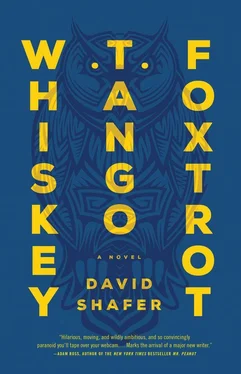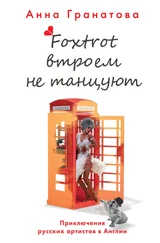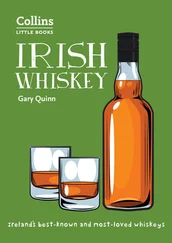Leaving the pub, Mark misjudged his drunkenness and knocked into a pair of men smoking near the door. “Sorry,” he said. Which wasn’t enough for one of the men, who looked him up and down, judged him no threat, and said, “I’ll crack your head, you nancy Yank shite.” The accent was broad, and the man was smiling in a dangerous way when he said it, so Mark didn’t understand at first. As the man leaned in closer, Mark saw a scar on his face that must have reduced his investment in it. His friend made to restrain him. “Best move on now,” said the friend to Mark, “he’s had a few.”
So Mark moved on, quickly. It was probably a little routine of theirs, just a couple of poseur bullies, but it still dumped a bucket of fear down his spinal cord, and on the heels of that, a shame at his physical cowardice. Nancy meant “fag,” right? How he wished he were with his long-ago friend Wallace, a bear-size homo from Wyoming and Harvard who spoke of dick-sucking in a farm-boy drawl and took pleasure in the lead-up to the barroom fights he got into and won every time.
How had the guy known Mark could be intimidated? Was it the vibrating chord of his cowardice? Charm and wiles were all Mark had; those were no good in close-quarters combat.
Once, long ago, when he was a boy playing Matchbox cars at a friend’s house, he heard the friend’s construction-foreman father call his dad “that ankle-grabber.” The friend’s mother said, “Hank, please!” in a way that Mark knew even then meant the accusation was more than idle. It had needled him ever since.
Mark was nearing the shawarma place with the attached off-license. But it was closed already. So he stopped into the pub with the doors black as polished boots. He wasn’t drunk enough to sleep. And this was the bar where he’d met the guy who gave him the number of the guy who delivered drugs by bicycle. He had a pint at the bar, and then he texted the number, using the little code the guy had written on the back of the card. Sardines was cannabis. Herring was coke. Salmon was salt heroin. Mark had no need of herring — the Ritalin was better anyway — and despite his tough act, he was a little afraid of salmon. He ordered sardines. Twenty-one grams, because this book wasn’t gonna write itself.
The walk home proved more challenging than he had anticipated. Navigational issues. That should be one of the Ten Steps to Committed Living: Take Careful Note of Route from Pub to Home. He wandered for an hour, deeply lost, probably within a quarter mile of where he was trying to be. There was Sheepshead Lane and there was Mince Pie Close, but where the fuck was his street? At one point, he found himself behind what seemed to be a Roman avenue of auto garages: impact wrenches whizzed and whined in the moonless night; fluorescent light spilled from half-open shop doors, wooden, eight feet tall. From one, men shouted in a language Mark hadn’t the foggiest of. Then, later, he dead-ended at a canal and leaned over to get a better look at what was bobbing beside an oil drum in a yellow-foamed eddy on the greasy surface of the canal.
Ah. A bloated pit bull, its eyes a-bug, its swollen tongue distended.
Other men might panic. About the swollen pit bull staring at him with crazed eyes from a greasy vortex, or about the fact that he had been tripped up by vanity and then by greed. But Mark panicked about neither. He backtracked to the last recognizable point, made an executive decision, and then vectored through a smaller grid of streets and lanes. There, at the end of one, was his.
Steps One through Ten were and always would be: Never Give Up.
And then ten seconds spent on the doorstep of the flat searching his pockets for keys, a crystal-clear image in his head of the three-key ring reclining on the bar top of that last pub.
But then, hosanna! there they were, in the Slydini pocket that his tailor had engineered into the brown suit jacket. Interior. Lower left side. Three by four, with a horizontal flap. The keys dropped into his palm.
He unlocked, and locked behind him. But the stairwell light would not come on. Mark found his lighter and ascended the steep steps like an Egyptologist, the wan flicker of the weak Bic, his left hand feeling the rough brick and stone of the stairwell walls.
He had seen her once. His stillborn sister. His mom was holding her, and his dad was holding his mom. His dad had parked him in a plastic chair in the hospital hallway and told him to wait. But he heard a sob from his mother, and love trumped fear and he ducked into the room. In his memory, his dad was wearing a hat. Was it a trilby? A fedora? Seemed unlikely. His dad did indeed wear such hats, but surely not under those circumstances?
The baby was dry and lilac and still and had died before she was born. His dad was about to send him out again, but his mom said, No, let him stay . So he held her tiny hand for a moment, his mom’s hand enclosing theirs both. Someone once asked him if he had ever seen a ghost. He’d said no but he could have said yes.
Chapter 12: Quivering Pines
After his interview with the doctor, Leo was moved from the intake single to a more spartan, shared room in the men’s wing. It looked like a room in a small, mid-price-range motel. Taupe carpet and wood laminate.
Leo’s roommate was a goateed man in the drifts of his forties who looked like a melancholic devil and carried without comment the incredible name of James Dean. He did not clutter the air with clatter about which dresser was his and here’s how the shower works or any of that. That first evening, Leo stayed in their little room and James stayed out of Leo’s way. Leo skipped dinner out of embarrassment — he wasn’t ready to explain to anyone what he was doing here. He thought he would be gone by the end of the weekend anyway. James came back from dinner with a glob of rice pudding in a plastic clamshell and gave it to Leo like a prom corsage.
“The rice pudding’s good here,” he said.
At nine thirty, when reading or journaling was recommended, James read from a worn paperback about the Stoics. From its cover, the alabaster bust of some stern beardo stared pupil-lessly. At ten o’clock, the onion-looking counselor walked down the long corridor of the men’s wing, rapping once on each door or door frame. James didn’t budge, so neither did Leo; he made no move for the light switch or the door.
“Curfew!” said the Onion on his return trip up the corridor. He stepped just over the threshold of their room, like a big shot.
“Yeah. Just one minute, Gene,” said James, “this is a great paragraph right here.” The Onion made a show of waiting impatiently while James did a fair impression of being just fascinated by a paragraph. Then the Onion went to switch off the light and James quickly held up an index finger without taking eye from page. The gesture made the Onion pause, after which he realized that he had paused, which pissed him off, which made him snap the light off. “Those are false idols, James. False idols,” said the Onion as he closed the door in a too-swift way that made it clear James had won that skirmish.
Leo assumed the show was at least partly for him, and he was gratified. The one summer he was sent to camp — fourteen — his bunkmate turned out to be an overweight emotional bully who played the French horn and masturbated ceaselessly. In these situations, a good bunkmate helped a lot.
“Gene’s a big Christian,” said James from the shadow of the other side of the room. “Very easy to needle, I think you’ll find.” Moonlight came through the window, fell on the pine veneer and the taupe carpeting. Leo noticed the strange viscosity of the institutional bedding. “The good doctor is also a Christian, I think. Though if so, he is a sly one, and difficult to needle.”
Читать дальше












